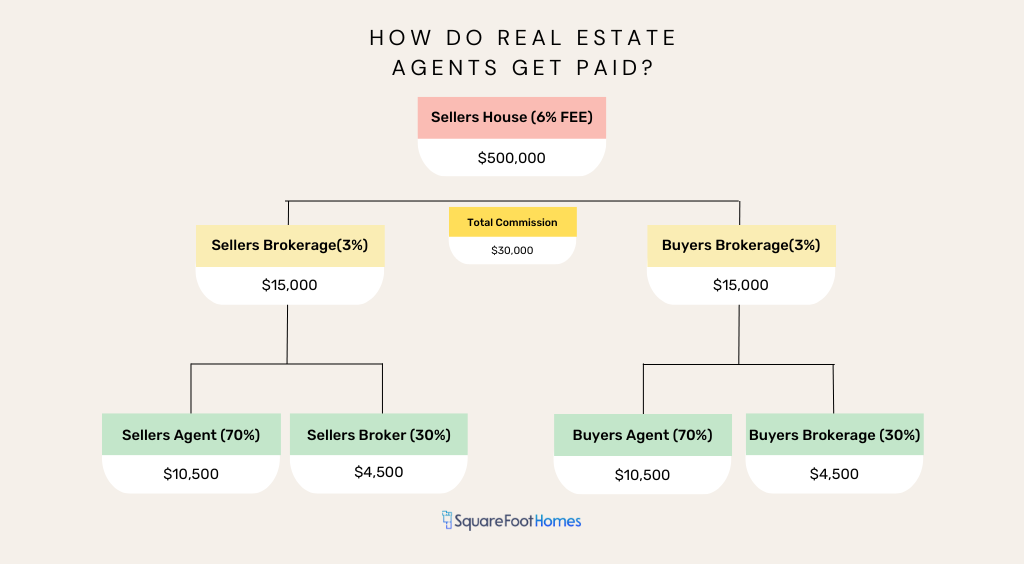Real estate agents are paid a commission after the sale of a home or property occurs. The amount they are paid can vary on every deal, which is usually outlined in the listing agreement between the seller and his real estate agent. Below we will explain in detail how real estate agents get paid, how much, and how the process works.

The Real Estate Agents Commission
The Listing Agreement
The journey of a real estate agent’s payment begins with the listing agreement between the seller and his real estate agent, also known as the listing agent. This is a contract between the seller of a property and the agent, which outlines the commission to be paid upon the successful sale of the property.
The Total Commission
The commission is typically a percentage of the sale price, and it’s agreed upon before the property is listed. The most common fee is around 5% or 6% of the total sales price, but this is always completely negotiable prior to signing the listing agreement.

Commission Sharing with the Buyer’s Representative
The listing agreement will also outline how much of the total commission will be shared with a buyers real estate agent. This amount is usually around 50% of the total commission. This practice encourages cooperation between agents and ensures that both the buyer’s and seller’s interests are adequately represented.
Listing on the MLS and Commission Details
Once the home is listed, particularly on the Multiple Listing Service (MLS), the listing agent enters details about the commission to be shared with the buyer’s agent. This transparency is crucial in the real estate industry, as it allows buyer’s agents to know what compensation they can expect upon the successful conclusion of a deal.
Broker’s Role in Payment Distribution
After a deal closes and the property is successfully sold, the payment process moves to the next stage. First, the brokers on both buyers and sellers side of the transaction are paid. These brokers are typically the firms or individuals that the real estate agents work for. After receiving their share of the commission, the brokers then distribute the remaining amount to the real estate agents.
Negotiating the Split
The split of commissions between the broker and the real estate agent can vary significantly. This distribution is a matter of negotiation between the agent and their broker. Common splits range from 20/80 to 50/50. Factors influencing this split include the broker’s involvement in the transactions, the effort to generate leads, services provided to the agent, and the extent of mentorship and guidance provided to the agent.
Changes Coming to Real Estate Commission Split
Recently, the National Association of Realtors was sued and lost a $1.8 billion dollar case. The lawsuit claimed that the sharing of commissions violated anti-trust laws. Because of this ruling, we may see completely different compensation structures in the future where buyers have to pay their own agents and listing agents do not share commissions with buyers agents.
Conclusion
In conclusion, the payment mechanism for real estate agents is a well-structured process that begins with a listing agreement and ends with a negotiated split of commissions between the agent and their broker. This system ensures that all parties involved in a real estate transaction are fairly compensated for their efforts and contributions. While it may seem like the commission on any one particular deal is a lot of money, the reality is that the median income for a real estate agent in is only $48,340/yr.
